Biomechanical art (also called Biomech) is a surrealistic style of art that combines elements of machines or alien tissues with human organics. Rendered with distinct realism, biomechanical art expresses an internal fantasy world, most typically represented with human or animal anatomy where bones and joints are replaced with metal pistons and gears, but infused with muscles and tendons.
various biomechanical tattoos
Biomechanical art was popularized in 1979 when Swiss artist H.R. Giger designed the alien creatures in Ridley Scott's Oscar winning movie Alien. After the popularity of Ridley Scott's 1979 movie Alien, tattoo artists began tattooing images taken directly from the movie, and from artist H.R. Giger's Necronomicon series. As the biomechanical tattoo art style became increasingly popular, tattoo artists such as Guy Aitchison and Aaron Cain began designing their own original, biomechanical art, creating one of tattoo's most popular contemporary tattoo art movements.
The most popular themes for the biomech tattoos are:
- the cyborg / robots tattoos (the skin is torn and reveals mechanical and robotic components that are enhanced by natural systems in the human body); they are typically done in black and grey, with white highlights, as these metallic, monochromatic colors are usually associated with machinery, but often red ink is used to portray muscle or tissue while blue ink is used for cables and wires. More recently, the style has evolved to sometimes include bright, unnatural colors for the wires and gears.
biomechanical tattoo: cyborg arm
- alien infestation (fusions of alien tissues with mechanical components underneath a person’s skin)
biomech tattoo: alien creature
- human body parts (bones, muscles, skulls, heads, faces, eyes, hands etc) or even human fetuses
biomechanical tattoo: human eye
biomechanical tattoo: human bones
- various animals or parts of the animals (snakes, octopuses, tentacles)
biomechanical tattoo: tentacles emerging from the head
- mythical creatures and beasts, demons, zombies, monsters, etc
biomechanical tattoo: a monster inside someone's body
Since these tattoo represent the future and the unknown, they can really be anything you desire and you can let your imagination can run wild. Creativity is key with all of the possibilities in a Biomechanical tattoo.
The best and most artistic biomechanical tattoos use an understanding of human anatomy to blend the natural body into the artificial machine components. Biomechanical tattoos often mimic the contours of muscles and bones, following the human musculoskeletal system. The point of these tattoos is to appear natural or even possible, to be believable and realistic. These tattoos are only successful when they appear to trick the eye, known as a trompe l'oeil in artistic terms. The tattoos don't need to be actually plausible, but must appear so. Talented artists fuse the human body (particularly muscles, tendons, and bones) with gears, wiring, circuits, tubes, and levers. Because of this, placement is an essential component of even the best designs. The biomechanical tattoo must be placed over the correct joints and muscles in order to look as believable as possible. Furthermore, the artist must be able to blend the tattoo into the normal, un-tattooed skin. If the biomechanical tattoo looks like a sticker or out of place then the entire effect is ruined, even if the actual tattoo is nicely executed.
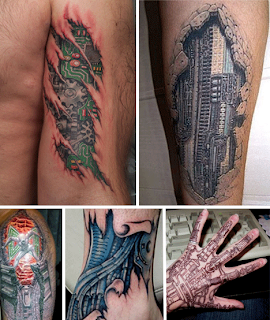
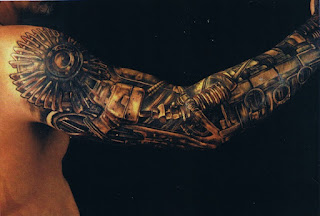
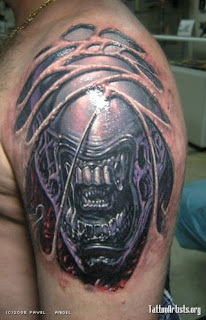
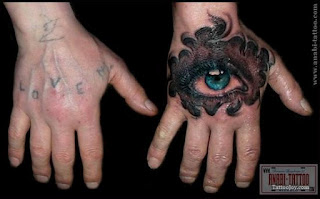


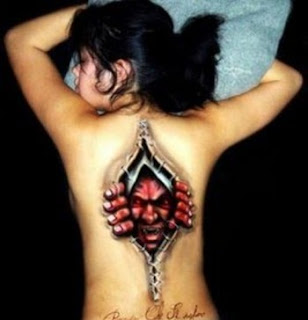


.jpg)





.png)
